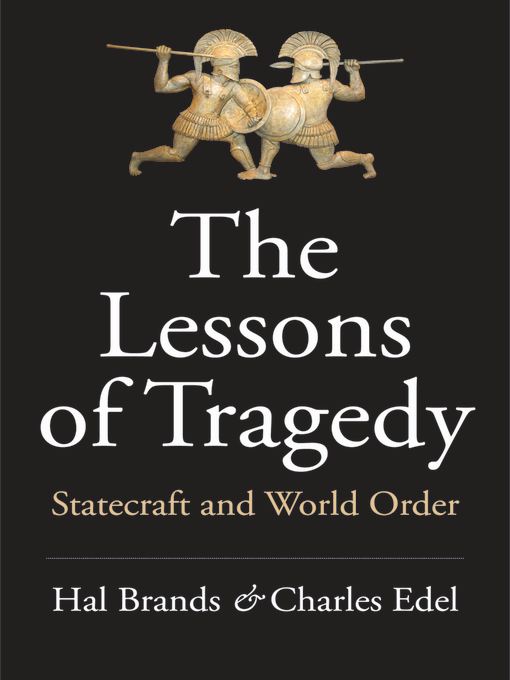
The Lessons of Tragedy
Statecraft and World Order
کتاب های مرتبط
- اطلاعات
- نقد و بررسی
- دیدگاه کاربران
نقد و بررسی

Americans are "serial amnesiacs" who have forgotten the hardest of hard times--which will serve us poorly when the hard times return. The ancient Greeks made the dramatic form of tragedy central to their cultural expression, write Brands (Global Affairs/Johns Hopkins School of Advanced International Studies; American Grand Strategy in the Age of Trump, 2018, etc.) and Edel (United States Studies Centre, Univ. of Sydney; Nation Builder: John Quincy Adams and the Grand Strategy of the Republic, 2014, etc.), as both admonition and inspiration. "An understanding of tragedy," they note, "remains indispensable--as it always has been--to the conduct of statecraft and the preservation of world order." One central facet of tragedy is that hubris will get a person in trouble; another is that it's never correct to assume you're in control of any situation. Given receding memories of the Cold War and the world wars, many ordinary Americans and policymakers alike have lost the awareness that, in the authors' view, the story of international relations over the centuries "has been one of recurring geopolitical cataclysms in which peace is ruptured, nations are shattered, countless lives are lost or disrupted, and golden eras come crashing to an end." It's the stuff of Aeschylus and Thucydides but also of the current headlines, in which the American assumption that democracies are allies and autocracies and authoritarian states suspect is giving way to global illiberalism and the competing geopolitical demands of states such as Russia and China. A properly formed tragic sense, the authors hold, instructs that rivalries between great powers can easily lead to war between them, "a prospect that seemed to have followed the Soviet empire onto the ash heap of history." Other aspects of the tragic sense include recognizing the need for personal sacrifice and communal action and seeing clearly the world for what it is, "especially when the outlook is ominous." Literate and lucid--sure to interest to readers of Fukuyama, Huntington, and similar authors as well as students of modern realpolitik.
COPYRIGHT(2019) Kirkus Reviews, ALL RIGHTS RESERVED. (Online Review)

























دیدگاه کاربران